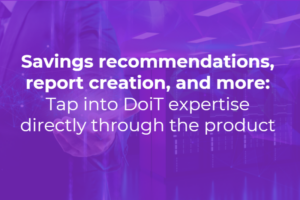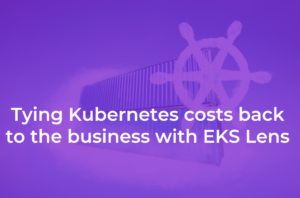The value of upskilling your cloud team
Organizations continue to flock to the cloud to take advantage of potential benefits such as increased efficiency and flexibility, enhanced security and faster innovation. Cloud computing is expected to grow from about $371.4 billion to over $832.1 billion by 2025 with 85% of businesses expected to adopt a cloud-first strategy by that year. The COVID-19 pandemic further accelerated cloud migration because many companies had to adopt remote work.
This increase in cloud migration has subsequently intensified the need for cloud professionals. Cloud computing skills in configuration, deployment, compliance and security are now essential to modern enterprises, but cloud adoption is far outpacing the supply of professionals with cloud experience and expertise. With continued rapid cloud adoption and more vacant roles than skilled workers, organizations will compete to maintain their teams and tech stacks.
A recent Cloudreach study highlights this growing skills gap in cloud technology. Companies will need to enhance recruiting measures and remove barriers limiting diversity and inclusion within the industry.
According to the study:
- Most IT leaders are extremely concerned about the skills gap, and more than half of respondents claimed it slowed them down.
- Nearly a third of companies reported that shortages reduced their abilities to manage and launch services.
- Within the next few years, half of the global workforce will need re-skilling to keep up with cloud migration and change.
As the cloud skills gap continues to grow, it’s essential for cloud-first companies – and any company looking to migrate – to understand the areas that future and current team members will need skills in to sustain successful cloud environments. These include:
1. Multicloud
Being proficient in the services of a single cloud provider isn’t enough these days. To take full advantage of the cloud and its benefits, you need teammates with multicloud experience who are familiar with as many cloud providers as possible – particularly the largest ones.
You will need this multicloud expertise to customize your infrastructure to suit your business needs and to plan and strategize the best cloud solution to complement your business goals and ensure you’re managing cloud costs effectively.
2. Containers
Containers allow businesses to deploy cloud applications quickly and consistently. Knowledge of today's most popular container technologies, such as Docker and Kubernetes, is essential for every cloud professional because all major cloud platforms utilize container services to simplify and streamline deployments.
Kubernetes can improve the efficiency and scalability of your tech stack across all major cloud providers. But Kubernetes isn’t easy to implement. It requires broad, deep knowledge, ranging from planning and architecture to deployment and compliance best practices. It also requires extensive knowledge on every platform on which you plan to deploy.
Since 2014, DoiT has helped many companies deploy Kubernetes on every available platform — Google Cloud, AWS, Azure and on-premises. This support includes hands-on training that covers fundamental concepts and features of Kubernetes. At the end of the training, clients can operate Kubernetes and deploy applications.
3. Machine learning and artificial intelligence
Cloud computing allows for rapid access to massive volumes of data. This is driving innovation in many fields — from healthcare and finance to manufacturing and beyond. Machine learning (ML) and artificial intelligence (AI) allow companies to make better use of these massive stores of data. Machine learning algorithms offer new insights, and artificial intelligence can help us make predictions based on future, potential data patterns.
The need to utilize data better in nearly every field means AI and ML skills are among the rarest and most sought-after in today’s engineering market. In fact, demand for artificial intelligence and machine learning skills will grow by 71 percent by 2026. While engineers should be well versed in AI, a UiPath survey states that 82% of executives agreed that the COVID-19 pandemic and work-from-home mandates increased the need for all employees (not only engineers) to have some knowledge of AI and automation.
To be effective in a cloud environment, engineers must have a deep understanding of machine learning principles and be comfortable with tools like neural networks to develop sophisticated machine models. So, as cloud computing continues to grow, it will become increasingly important for engineers to possess cutting-edge ML and AI skills.
4. Data management
As ML and AI become more commonplace, the need for computer engineers with strong data management skills will continue to increase. AI and ML rely on large stores of data to function properly. Without skilled professionals to manage this data, ML and AI are not feasible.
Cloud data management offers a high degree of security, scalability and availability — giving organizations more control over their data. Most cloud providers have data services and offer data warehouses. As cloud computing continues to scale, managing all the data in a cloud environment becomes an increasingly necessary career skill.
At DoiT, we provide expert guidance on data management for both Google Cloud and Amazon Web Services (AWS). We’re a Google Cloud Partner with Data Management Partner Specialization, helping clients with migration and management of data workloads to Google Cloud and Google Cloud products including Google Cloud SQL, Cloud Spanner, BigTable, Firestore, Firebase and MemoryStore. We are also an AWS Advanced Consulting Partner with extensive experience in performing big data migrations to AWS.
5. Security
According to a recent ISACA report, 63% of organizations have unfilled cybersecurity positions — an 8% increase from 2021. And, 62% say their cybersecurity teams are understaffed.
More data in the cloud means security and compliance are more nuanced than ever. Engineers must be familiar with not only how to keep cloud data and infrastructure secure, but how to keep it compliant in different geographic regions and industries. For example, a cloud engineer working for a health company might need experience managing data in a manner that’s HIPAA compliant.
Upskill your team
As cloud adoption continues to increase, competition for professionals with cloud expertise will also increase. Instead of focusing their energy on competing for expensive cloud talent, companies can leverage cloud consultants and training programs to ensure their current teammates are equipped with the skills to manage their cloud use successfully.
As a customer of DoiT, you have ready access to the expertise of senior cloud architects highly skilled in areas including multicloud, data management, security and artificial intelligence — all at no extra cost. With the support of their experience and insights, you can chart a successful cloud journey.








